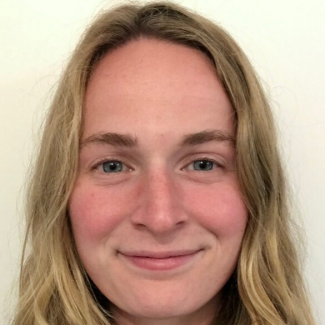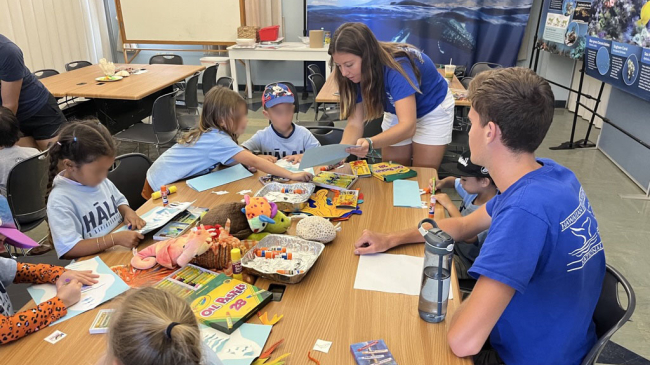Seraina Rioult-Pedotti, a 2022 Hollings scholar spent her summer looking at Pacific halibut (Hippoglossus stenolepis) and black rockfish (Sebastes melanops) diets at the Kachemak Bay National Estuarine Research Reserve (KBNERR) in Homer, Alaska. These are two of the largest sport fisheries in Kachemak Bay, so they are both environmentally and economically important species. Understanding these top predators’ dietary preferences can help fisheries managers interpret how fishing activity affects entire ecosystems.
Seraina Rioult-Pedotti boating to collect samples during her 2023 Hollings internship at Kachemak Bay NERR in Alaska. (Image credit: McKenna Shook)
Building on a citizen science program at KBNERR and collaborating with the Alaska Department of Fish & Game, Seraina collected samples from local sport fishermen for stomach content and stable isotope analyses. By looking at stomach content, she learned what the fish were eating shortly before they were caught. The stable isotope analyses provided information about what the fish and their prey ate over several months: where they ate in the food web, in the water column, or geographically. Together, these analyses will help her learn about trophic behavior, or what level(s) of the food chain the fish are feeding at, which can bolster existing knowledge on the influence of halibut and rockfish on other species and their habitats.
Seraina is interested to see what findings come from her analyses and plans to continue this project as a master’s thesis after graduating from UMass Amherst. She is also interested in how research can benefit from collaborations like this one with multiple stakeholders in Kachemak Bay.
[My internship] was the most rewarding experience of my educational career. Not only did I make invaluable connections and get to learn about how research is done outside of academia, but I also was able to gain confidence in my research skills with the support and encouragement of a wonderful team of scientists and fellow interns.

Seraina is a 2022 Hollings scholar studying natural resource management at the University of Massachusetts, Amherst.


